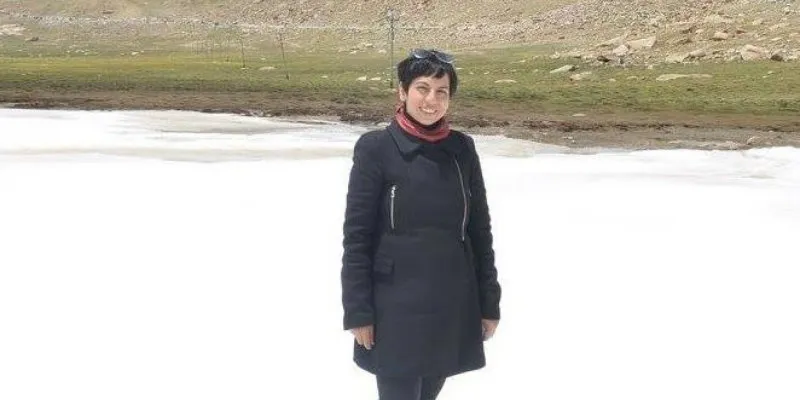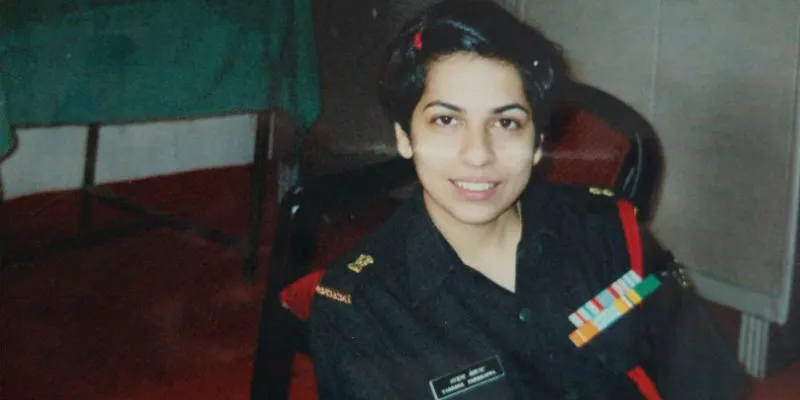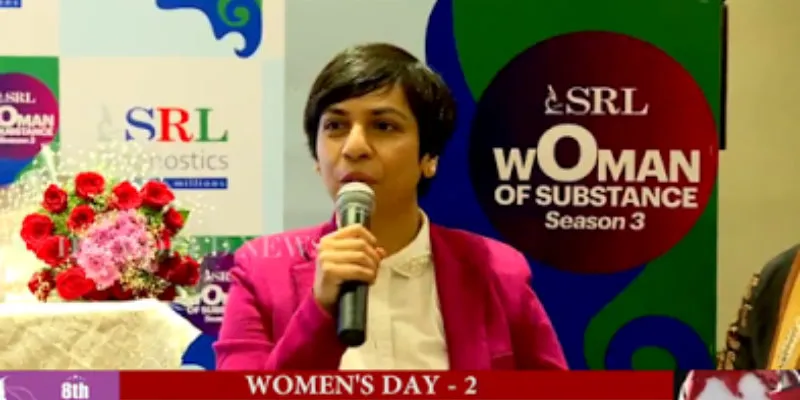From Kargil to entrepreneurship: Major Vandana’s desire to make a difference helped her make the transition
Major Vandana Sharma served in the Indian Army for a decade, made a mark in the corporate sector, and is now helping entrepreneurs succeed with StartupPeopleConsulting.

As a defence services child, Major (Retd) Vandana Sharma’s love for the uniform started when she was young. She grew up seeing uniforms, fighter aircraft, and inspiring people. As a child, she often wore her father’s beret and saluted herself in the mirror, always wondering whether she could wear a real uniform one day.
Thankfully, by the time she finished her graduation, the Indian government announced the Women’s Commission in the armed forces. Vandana soon realised her dream and joined the Indian Army.
After serving the Army for a decade, she moved to the corporate world, holding senior positions in various MNCs and e-commerce startups before starting out on her own.
Today, she is a successful entrepreneur with StartupPeopleConsulting.
In a conversation with HerStory, Vandana traces her journey from childhood, her experiences in the Indian Army, especially during the Kargil War, and her transition to the entrepreneurial world.
HS: Can you tell us about your experience in the Indian Army?

VS: I had a wonderful career with the Indian Army for a decade. I have been posted to different parts of the country such as Ladakh and North Bengal where hardly anyone had seen a woman in uniform then. I also played a backend role during the Kargil War in 1999. Being posted to the most beautiful but far-flung areas of the country was challenging in terms of limited resources and harsh terrain but it brought great learning experiences. I love to travel and this also made me appreciate the unexplored beautiful areas of the country that are relatively unknown to India and the world.
Initially, I used to get curious looks, but in a few months when everyone realised I was equally good at running, sports, professional work, and management, things were seamless. I was always a part of the team and not looked at differently as a woman.
HS: How did the Kargil War impact you?
VS: When the Kargil War happened, I was quite young. The artillery shelling in Kargil-Drass region was a usual affair; no one had expected a full-fledged war. We had one of the ammunition dumps at Kargil blow up during the War. The entire mountain seemed to be on fire. There was destruction and devastation all over Kargil town. There was blasting less than 200 meters away. The splinters have a wide range and cause lethal injuries. The whole town shook. I promised to myself then that if I am to survive this war and live beyond, I will make this life worthwhile. After that moment, I got used to it; the fear of life and death was beyond me.
There was a lot of pain and sadness whenever we lost colleagues but it was necessary to stay strong and calm to provide logistic support to colleagues in active combat. We worked night and day and that was also not enough.
HS: How and why did you make a transition from the Army to the corporate world?

VS: I wanted to explore life outside uniform. One reason was stability and two children who were growing up. The other reason was to learn more and experience a different life from what I had known from childhood. My assignment was for ten years so I had an option to choose an extension of four more years in the Army or quit. I decided to move so that I could reskill and prepare for another career while I could still adapt and learn.
As an Army officer, one lives in a closed ecosystem where processes, policies and role descriptions are very clearly laid out. The armed forces serve the country without questioning ROI or profitability. It was a big shift for me to learn the ropes in the world of business where one has to constantly cut costs, optimise resources. and each decision is based on financial implications.
HS: What was life like in the corporate world?
VS: When I made the transition to corporate life, I really had to start all over again. I had to learn new skills, business vocabulary, working with technology, and life in big cities, including managing traffic and infrastructural menace. I was determined to make it work and relentlessly pursued my career across various sectors like IT, infrastructure, logistics, e-commerce and tech startups. Being considered resourceful with a strong people network was really helpful. Staying curious to learn more helped me integrate seamlessly across organisations and do well in my assignments.
HS: Why did you decide to become an entrepreneur?

VS: When I look back at all my assignments across various companies, I realised I always picked up projects which were entrepreneurial; they were either being done for the first time in an organisation or amid chaos and needed a fix. I got involved with mentoring cells at engineering colleges and business schools and realised it gave me a lot of joy to share my experience and help guide budding entrepreneurs on setting up startups and working with limited resources, financial constraints and acute deadlines.
I founded StartupPeopleConsulting in August 2017. A lot of entrepreneurs learn the hard way after making mistakes right from the start: from the time of searching for co-founders and early employees to find the right talent as per not just the skill or sector but also the values and vision of the organisations.
My project helps early entrepreneurs with all people-related matters and also helps build their networks and teams across locations with minimum effort and speedy timelines.
HS: What are the women's empowerment initiatives/mentorship programmes you are working on?
VS: While leading people initiatives across sectors, I have always advocated and ensured inclusivity for high calibre and meritocracy. On the job, training and mentoring both have played a very important role besides enrolling them in leadership development programmes.
In addition, I have worked towards creating women-based forums in each of these organisations to ensure their voice is heard formally and informally. I have run critical learning and development programmes to encourage women to plan their financial independence, especially around their milestones and career breaks.
HS: How did your stint in the Army help you in the corporate world and as an entrepreneur?
VS: There are a lot of common factors between the armed forces and the corporate world.As a soldier, one learns to operate with almost no resources, tight deadlines, ambiguity, and very effective leadership. So, that helped me learn and adapt real quickly, and perform effectively and consistently.
HS: What is the mantra/motto you live by?
VS: The universe falls in love with a stubborn heart! What you wish for always comes true if you work hard for it.
HS: What are your plans for the future?
VS: I want to contribute towards building and nurturing an eco-system for startups in India. I want to ensure that new-age organisations are agile and swift-footed to enable meeting market dynamics globally, have consistent performances like any other economic power, and build a great work ethic and culture in Indian startups. The right foundation and talent could help them grow into multi-billion organisations.
Besides this, I am passionate about making a difference to this world. The causes which are close to my heart are: women empowerment and doing something meaningful for armed forces veterans.
I want to be an inspiration to young men and women. I hope to work towards building an equal world where gender plays no role, whether it is in business, science, music, art, sports, running homes, or running government offices and countries.







